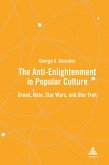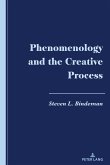Few fields in philosophy are so seemingly distant from ordinary human experience as theories of knowledge. How much information do we draw in from bodies outside of us? And to what degree do our perceptual and mental processes subjectify that information to the point of becoming non-objective? The Heart of Matter: Bridging the Kantian Gap in How We Know Things presents both a back history of current theories of perception and a plausible theory to span the gap between subject and object.
This book begins with Sir Karl Popper's theory of falsifiability, as a twentieth-century version of Kantian subjectivism. Before considering eighteenth-century transcendental philosophy, a look at both the empirical and rational theories that inspired Kant helps place his Critique of Pure Reason in context. This book highlights the developments in Kant's thought, as he struggled to solve important problems within his Copernican revolution. How far does Kant's theory coincide with our actual perceptual experience?
Twentieth-century experimentation in perception sheds important light on human knowing. The Heart of Matter follows Cornelio Fabro's study of those psychological findings and especially his ability to incorporate those findings into a coherent description and explanation. Many current theories of knowledge dismiss any possibility of our objectively knowing bodies outside of us; this book takes a candid look at both the major dilemmas implied in such a dismissal, as well as our actual perception of things. On this account, a fruitful exchange does appear to take place between the mind and reality in perception.
"This book is a clear and brilliant contribution to the philosophy of knowledge. Through a detailed study of Cornelio Fabro's theory of knowledge, involving modern advances in psychology of perception, the author convincingly bridges the problem of the gap between senses and thought. The key-point in this volume is the importance given to sensations integrated in perception and penetrated by the intellectual grasp of the world around us. I recommend this book both to scholars and students. They will enjoy the elegant and fresh style which makes its reading very pleasant."
-Juan Jose Sanguineti, Professor emeritus, Faculty of Philosophy, Holy Cross University (Rome)
This book begins with Sir Karl Popper's theory of falsifiability, as a twentieth-century version of Kantian subjectivism. Before considering eighteenth-century transcendental philosophy, a look at both the empirical and rational theories that inspired Kant helps place his Critique of Pure Reason in context. This book highlights the developments in Kant's thought, as he struggled to solve important problems within his Copernican revolution. How far does Kant's theory coincide with our actual perceptual experience?
Twentieth-century experimentation in perception sheds important light on human knowing. The Heart of Matter follows Cornelio Fabro's study of those psychological findings and especially his ability to incorporate those findings into a coherent description and explanation. Many current theories of knowledge dismiss any possibility of our objectively knowing bodies outside of us; this book takes a candid look at both the major dilemmas implied in such a dismissal, as well as our actual perception of things. On this account, a fruitful exchange does appear to take place between the mind and reality in perception.
"This book is a clear and brilliant contribution to the philosophy of knowledge. Through a detailed study of Cornelio Fabro's theory of knowledge, involving modern advances in psychology of perception, the author convincingly bridges the problem of the gap between senses and thought. The key-point in this volume is the importance given to sensations integrated in perception and penetrated by the intellectual grasp of the world around us. I recommend this book both to scholars and students. They will enjoy the elegant and fresh style which makes its reading very pleasant."
-Juan Jose Sanguineti, Professor emeritus, Faculty of Philosophy, Holy Cross University (Rome)
Dieser Download kann aus rechtlichen Gründen nur mit Rechnungsadresse in A, D ausgeliefert werden.
"This book is a clear and brilliant contribution to the philosophy of knowledge. Through a detailed study of Cornelio Fabro's theory of knowledge, involving modern advances in psychology of perception, the author convincingly bridges the problem of the gap between senses and thought.The key-point in this volume is the importance given to sensations integrated in perception and penetrated by the intellectual grasp of the world around us. I recommend this book both to scholars and students. They will enjoy the elegant and fresh style which makes its reading very pleasant."-Juan Jose Sanguineti, Professor emeritus, Faculty of Philosophy, Holy Cross University (Rome)









